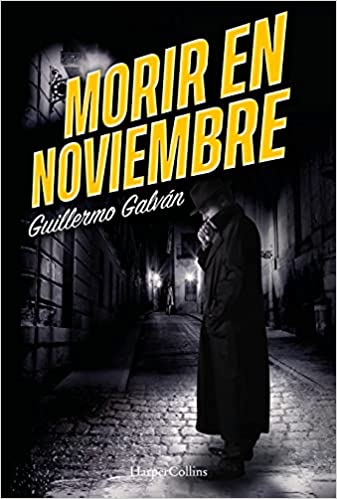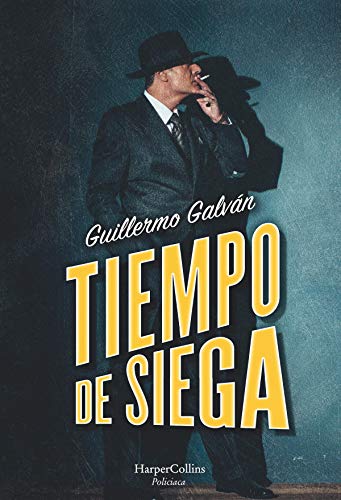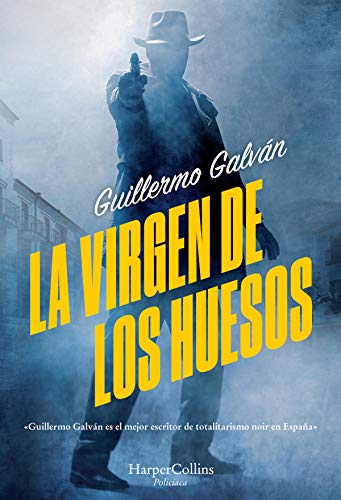In the Valencian writer Guillermo Galván we enjoy a Mediterranean air throughout Vazquez Montalban, combined with evocations to that John le Carré that combined espionage and history, insofar as the most underground political and diplomatic movements have shaped the future of our days since the XNUMXth century.
Thus we enjoy plots with a noir touch, but also with the tension typical of all fiction that points to spy issues. An espionage that in more Hispanic territory connects with that extensive period of Francoism that became a social wasteland but active in its most interactive aspect with other leaders from here and there. All of them involved in the Second World War and the subsequent reconstruction from a coexistence that was more forced than anything else. Dangerous friendships due to unsuspected interests and conveniences. Mirrors of a time adjusted to fiction, where we can discover those deforming reflections, a necessary hyperbole about reality that relocates sewers and offices to their true weight in each era.
A space to locate great plots that bring us closer to more possible explanations than what the official chronicles tell us. And it is that if fiction exceeds reality at times, never more clearly than in what was left of Europe after the convulsive twentieth century.
Although there is more to discover in the bibliography made in Galván from historical fiction to thrillers, here we approach one of his great tasks around his now legendary Carlos Lombardi, on which an always recommended series pivots...
Top 3 recommended novels by Guillermo Galván
Die in november
November is a month for few things, a time of transition. The typical month in which even the big platforms need to invent a black day to be able to sell a broom. But there was a time when even November was a good month for anything.
I am referring to those intermediate decades of the 20th century between open wars or cold wars. A time in which Spain first and Europe later broke out into unsustainable conflicts. The embers of weapons paradoxically left a Cold War in which every neighbor's son could be a spy or a mercenary for the highest bidder flag. To the point of Perez-Reverte immersed in the same era with his Falcó series, Guillermo Galván takes us into those strange and exciting days with an accurate story.
November 1942, the world burns in flames and Spain, still devastated and in full repression, is a nest of spies. Carlos Lombardi, back in Madrid, survives as best he can with his precarious detective agency. You can't afford to turn down any job so you have to investigate and track down a mysterious German traveling salesman. Nothing could appeal to you less than sticking your nose back into the affairs of the Third Reich but
At the same time, an aspiring actress with a dubious reputation appears murdered and the state police have little interest in investigating and discovering what is behind it. So Lombardi will find a way to do justice finding himself trapped in a sordid plot of prostitution, cinema and black market.
Are both cases connected? Guillermo Galván returns to the harshest Spanish postwar period to bring us a crime novel in which, in a masterful way, he brings together the police, historical and espionage genres.
Mowing time
The beginning of the series. The due introductions and soon we go into action with a stellar role in the purest style of the heroes of the black genre. Lombardi is a guy with his lights and shadows, with those contradictions that naturalize the human condition, focusing it on a character exposed to a thousand dangers.
Madrid, 1941: Carlos Lombardi, former criminal police officer and now a political prisoner for loyalty to the Republic, is serving his sentence in Cuelgamuros working on the works for the mausoleum of the Valley of the Fallen. A few days before Christmas Lombardi is unexpectedly released and transferred to the Police headquarters, where he is received by his former boss Balbino Ulloa, whom years ago he helped to avoid being expelled from the force by providing him with an improvised Popular Front card.
The police of the New Regime need him to solve a case that, despite its scandal, has not been leaked to the press: the murder of a priest who has had his throat slit, tortured and castrated. The heinous crime appears to have been committed by the same murderer Lombardi was hot on in 1936, before the war. Ulloa urges him to take charge of the investigation as a "service commission" and the promise of a possible pardon in the future...
The virgin of the bones
Summer of 1942. Carlos Lombardi is forced by the New State police to follow the trail of a missing young man. Still on provisional release, with an unstable job at the Hermes investigation agency, the former Republican inspector faces a rural world, unknown to him, in deep Castilla; a world of silence and fear marked by cruel repression during the first months of the recent civil war.
Under the distant tutelage of his former chief inspector Balbino Ulloa and the long-distance support of Alicia Quirós and Andrés Torralba, his atypical fellow sufferers, Lombardi must face the arrogance of the victors, the consolidated caciquism, the daily corruption and the elusive attitude of the losers. Men who neither want nor can look back, women who seek their place against the current, people who patiently wait to see the land and the history of their ancestors devoured by the water of a future swamp. A landscape marked by concentration camps and mass graves in territories known to all that no one dares to travel.



